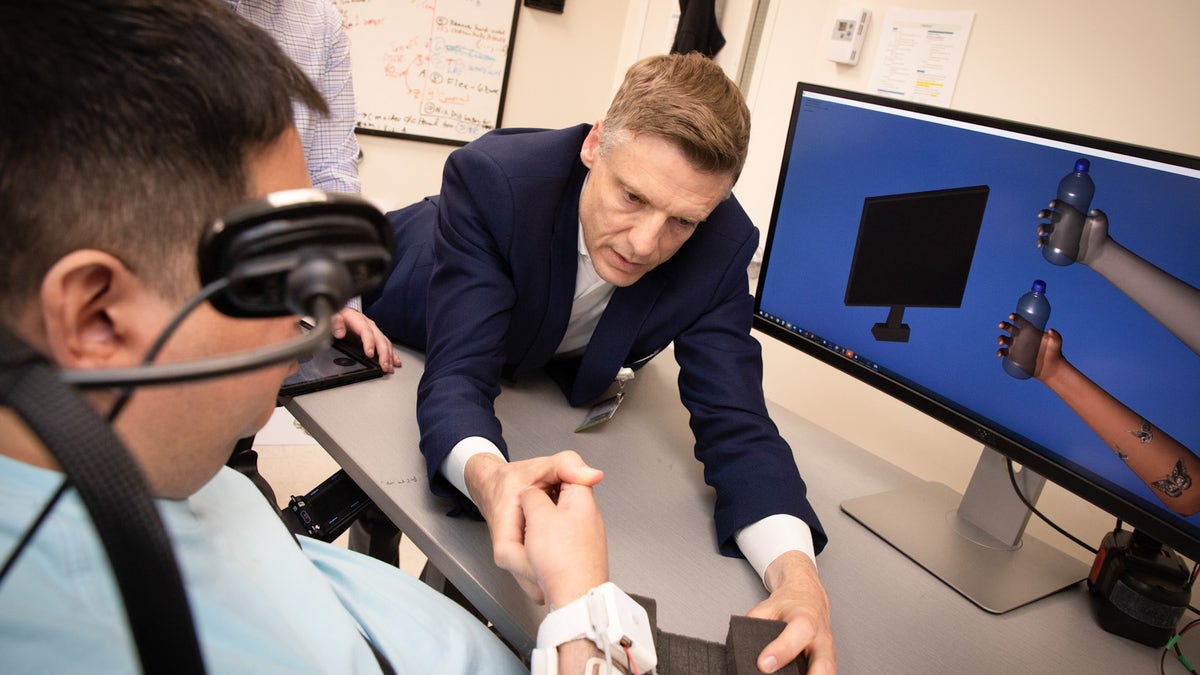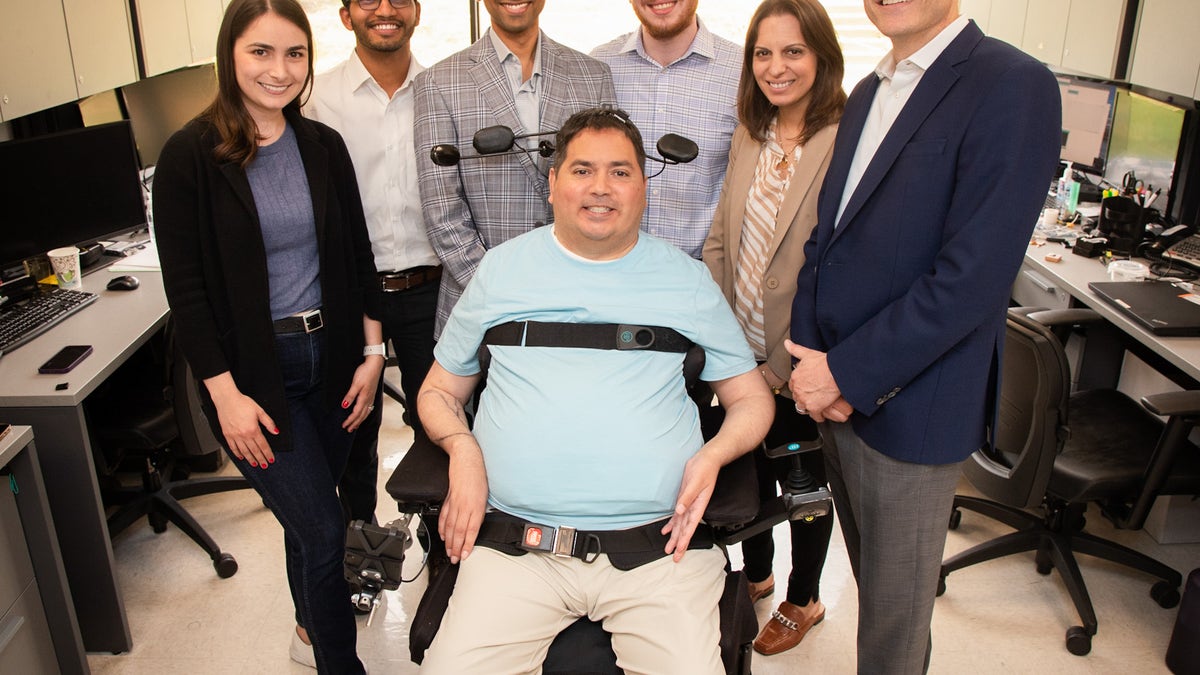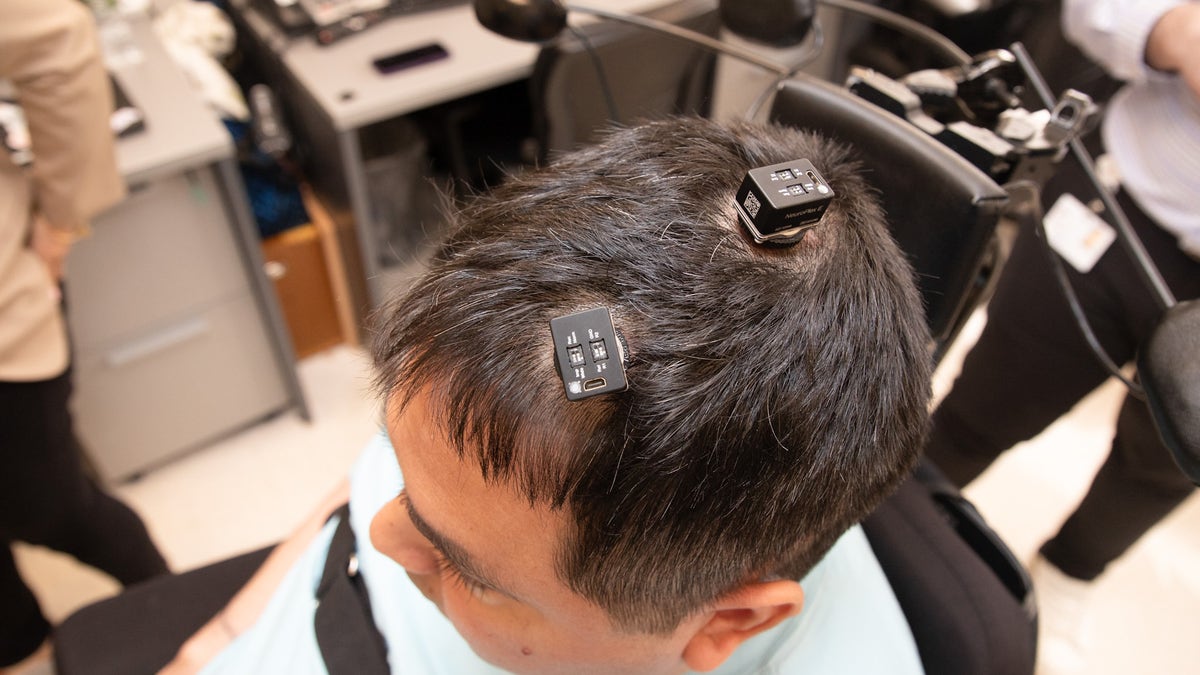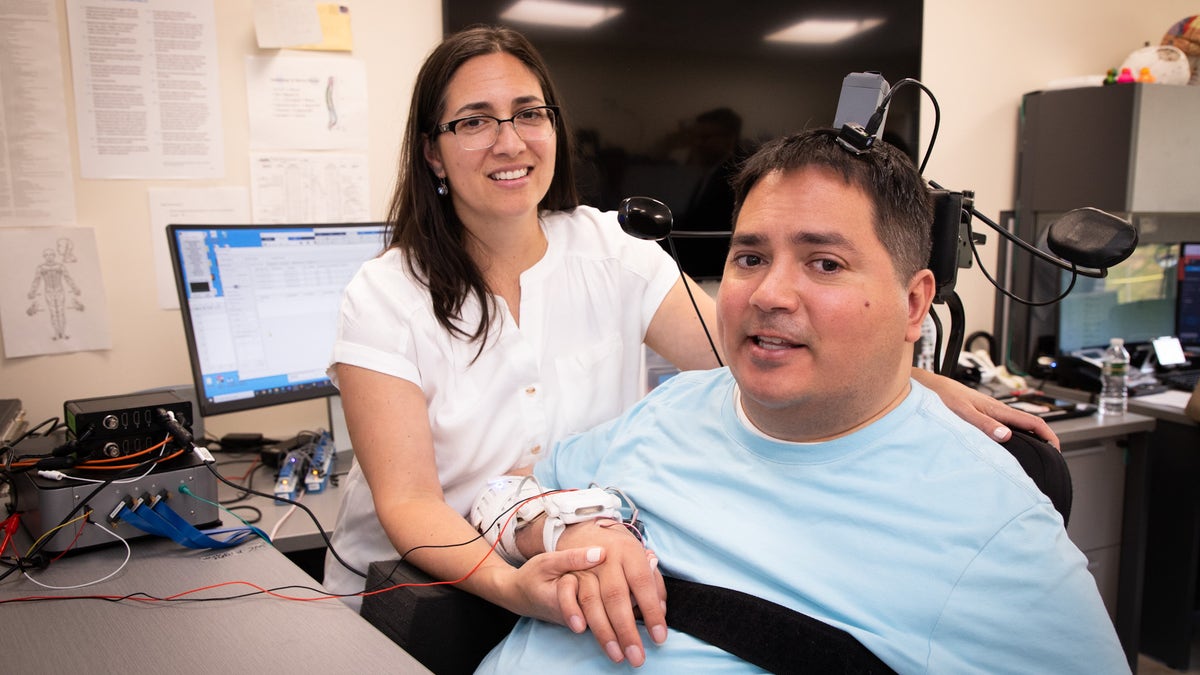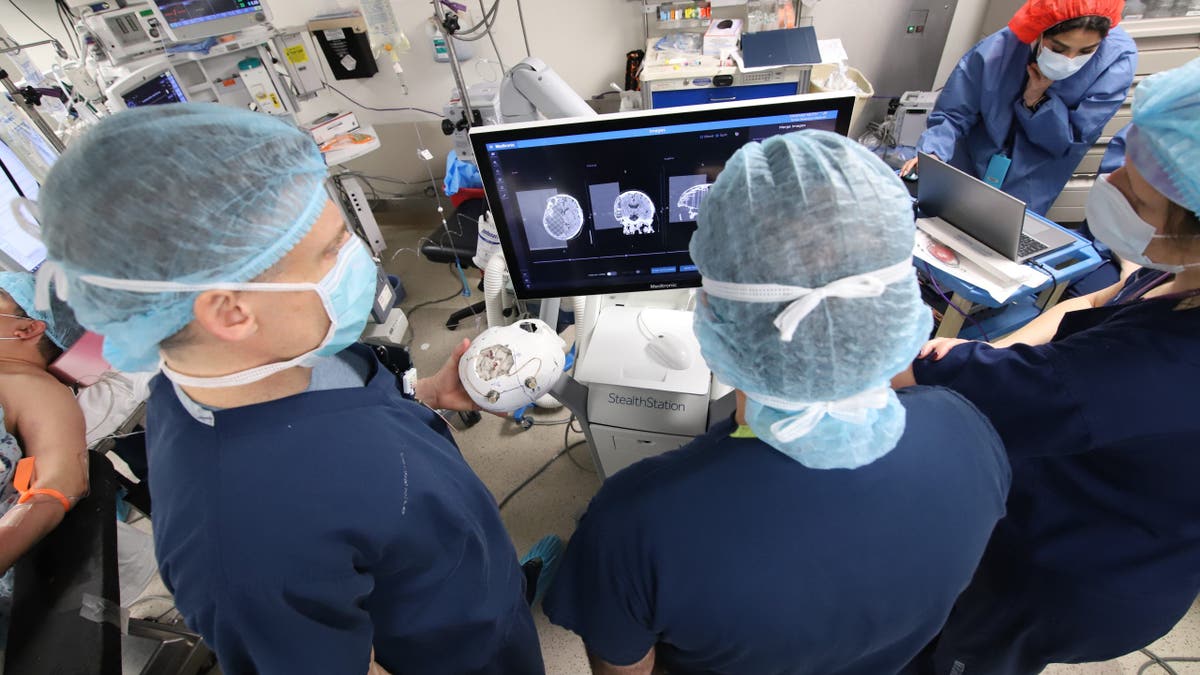Health
Men with spinal cord injuries become fathers thanks to rare fertility treatment at Miami clinic
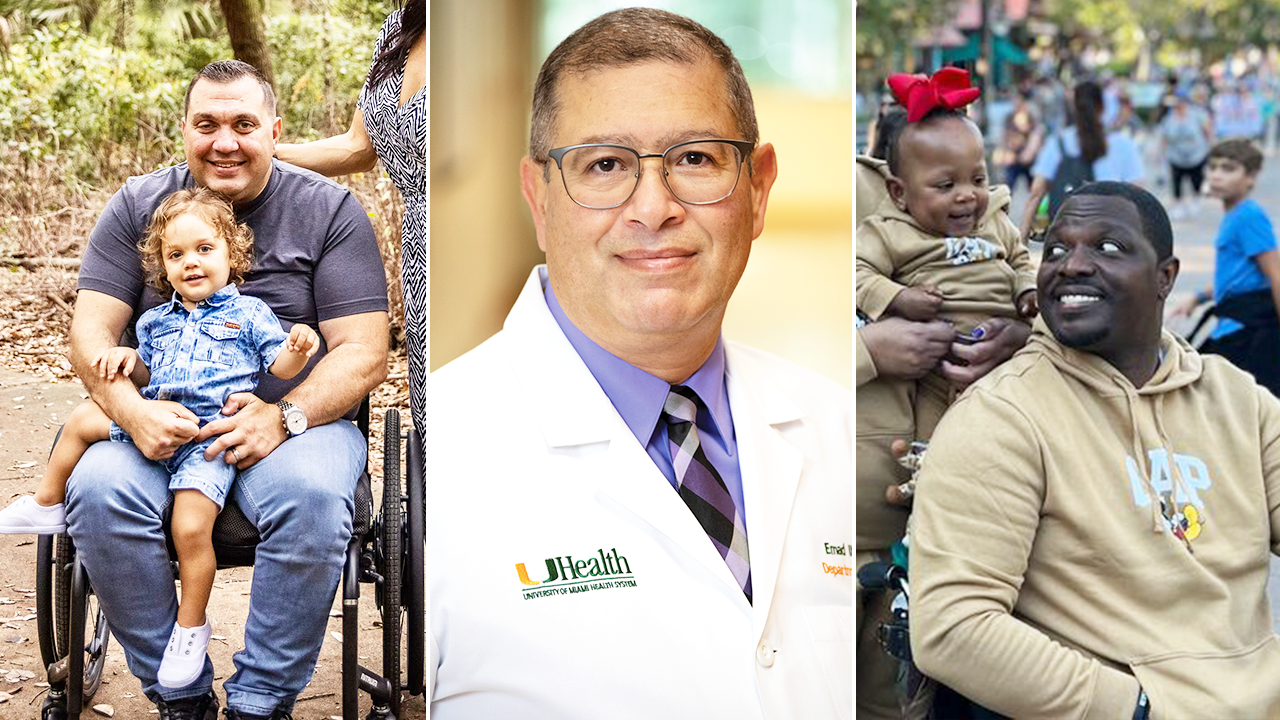
A spinal cord injury can be life-altering – and the potential for infertility is often a devastating blow as well.
Among men who experience spinal cord injuries (SCIs) in the U.S., nearly eight in 10 have fertility and reproduction issues due to erectile dysfunction or poor sperm quality.
But one clinic in Miami, Florida, is on a mission to help men with SCIs start a family.
STUDY SUGGESTS MEDITERRANEAN DIET COULD BOOST MALE FERTILITY
The Miami Project to Cure Paralysis, part of the University of Miami Miller School of Medicine, has aided in the birth of 200 babies since the 1990s.
Fox News Digital spoke with Dr. Emad Ibrahim, director of the Male Fertility Research Program, about how “amazing” this achievement has been.
A patient with a spinal cord injury enters the lab with Dr. Emad Ibrahim at his clinic in Miami, Florida. (The University of Miami)
The doctor said “nothing beats the feeling” of finding out one of his patients is expecting a child.
MEN’S ENERGY AND VITALITY PLUMMETS FOR 6 REASONS
“Every time we get an email with an ultrasound picture that shows the baby … it’s a mission accomplished,” he said. “It’s the most gratifying sensation you’ll ever have.”
Ibrahim, an associate professor of urology and neurological surgery at UMiami, said the clinical research program is “very unique” in its quest to help men father their own children through techniques rarely found elsewhere.
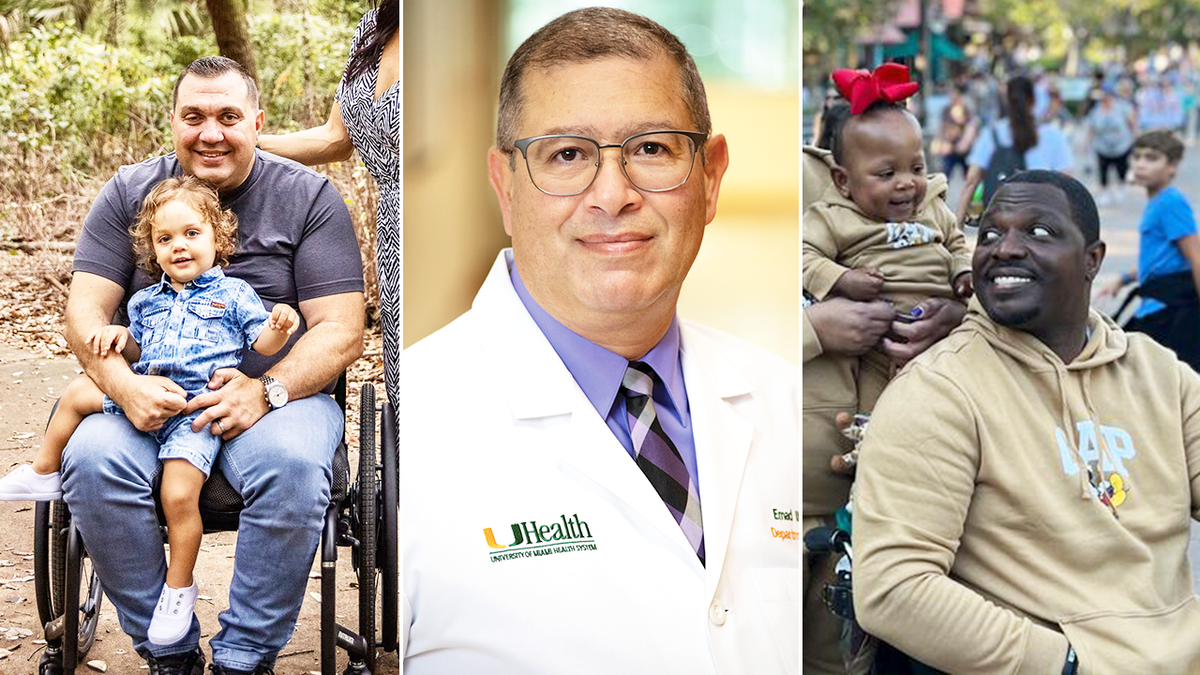
New dads Eric Rosemary, left, and Darris Straughter, right, both underwent procedures with the Miami Project under the direction of Dr. Ibrahim, center. (Eric Rosemary; The University of Miami)
While men with erectile dysfunction can be given medication to address this issue, men with ejaculatory dysfunction face a bigger challenge that the Miami clinic addresses through two unique procedures.
The two techniques include penile vibratory stimulation and electroejaculation, both FDA-approved and selected based on the nature of the spinal cord injury.
ERECTILE DYSFUNCTION MEDS LIKE VIAGRA LINKED TO REDUCED ALZHEIMER’S RISK, STUDY SUGGESTS
The electroejaculation machine activates and contracts the glands responsible for producing sperm. (The machine is also available in Sweden, its only other location besides Miami.)
This method is guaranteed to be successful “almost 100% of the time,” according to Ibrahim.
‘Amazing’ fatherhood
Men from all over the U.S., and even outside the country, have come to seek this treatment — including Darris Straughter, 44, a Miami native.
For more Health articles, visit www.foxnews/health
Straughter was a victim of gun violence in 2018, he told Fox News Digital in an interview.
While sitting at a traffic light, he was shot eight times. The injuries left him paralyzed from the chest down.
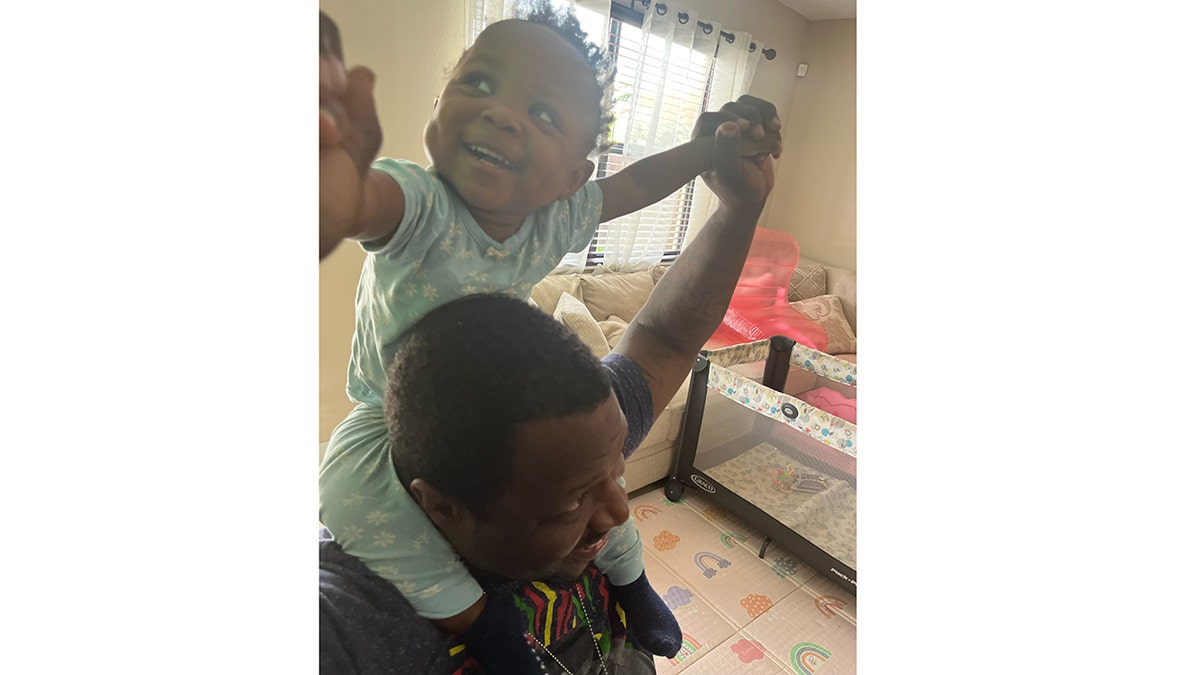
Darris Straughter plays with his daughter, who will turn 2 on Aug. 5, 2024. Straughter was paralyzed by gunfire in 2018. (The University of Miami)
“I don’t feel anything,” he said. “It’s a crazy situation. You just have to roll with the punches and keep moving and try to stay positive.”
Despite the incident, Straughter — who already had one child of his own — was determined to provide children for his wife.
FDA APPROVES FIRST AT-HOME STERILE INSEMINATION KIT TO HELP WITH INFERTILITY
“I kept saying, ‘She deserves a kid,’” he said. “She was by my side the whole time. So, I was like, ‘I’m going to try any way possible to make it happen.’”
Straughter received treatment from Ibrahim, which ultimately led to his wife’s successful pregnancy. His daughter is now almost 2 years old and is “healthy and strong,” he said.
“[Fatherhood] is amazing. It’s so joyful,” he said. “I just love everything about it.”
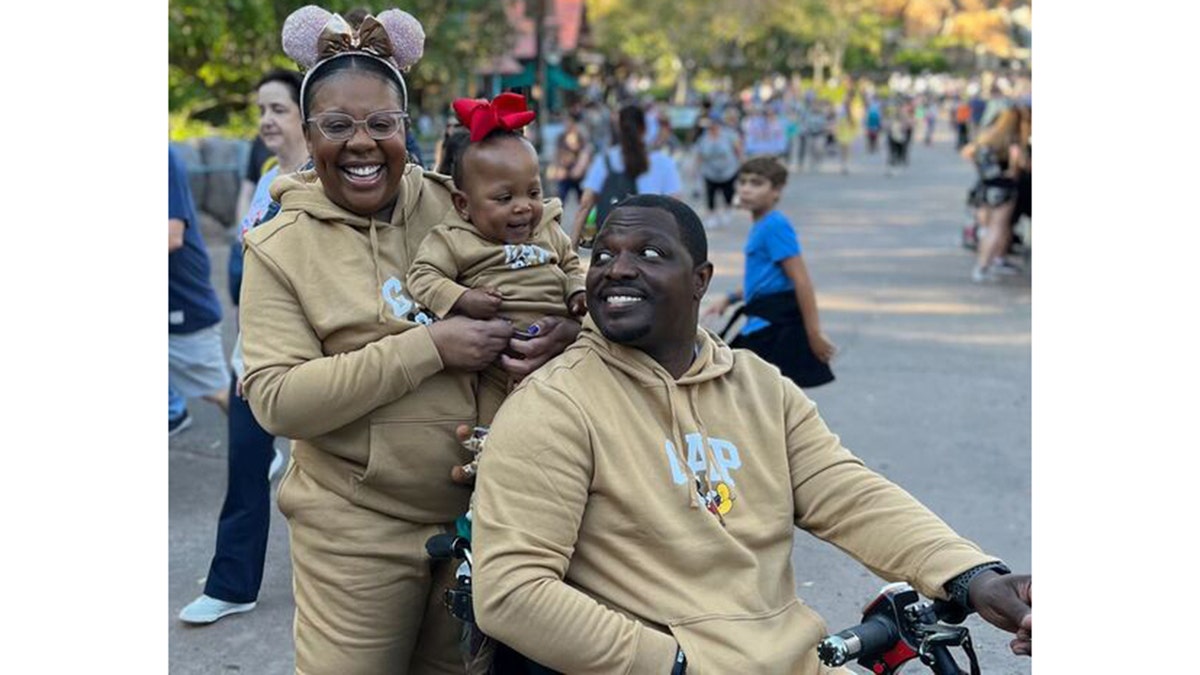
“I pray God continues to guide us on a great path,” Straughter, pictured with his wife and daughter, told Fox News Digital. (The University of Miami)
Fellow Florida resident Eric Rosemary, 46, also found success at the Miami facility after a Memorial Day accident 15 years ago left him paralyzed.
OZEMPIC BABIES: WOMEN CLAIM WEIGHT-LOSS DRUGS ARE MAKING THEM MORE FERTILE AND EXPERTS AGREE
“I was on a boat … in West Palm Beach, and I fell off the boat and shattered my C4, C5, C6 vertebrae and became a quadriplegic,” he said.
Rosemary, who has been married for eight years, told Fox News Digital that he turned to the Miami Project when the timing was right to have kids.
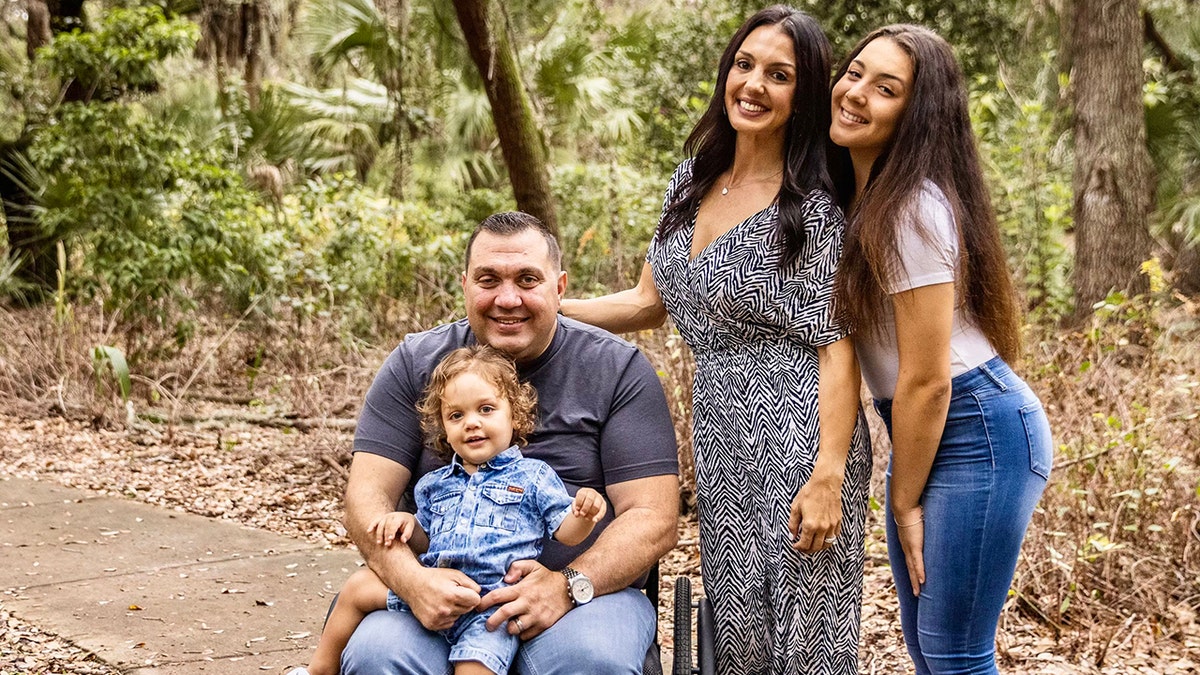
Eric Rosemary of Florida, pictured with his family, said the Miami Project is “leading the way” in helping people with spinal cord injuries adapt. (Eric Rosemary)
Rosemary was previously involved in clinical trials with the project.
He and his wife have since had two sons, born in 2020 and 2023, after three attempts at the first pregnancy and two attempts with the second.
“When you first get injured, there are so many other things you have to worry about,” Rosemary said.
SPINAL CORD TREATMENT RESTORES FUNCTION FOR PARALYZED PATIENTS IN STUDY
“In my 30s, I was able to cope with having a spinal cord injury, rebuilding my business, re-building my life, then getting married and having my boys,” he continued. “I was fortunate enough that I had the time to do that.”
As patients who have suffered from an SCI mainly focus on mobility and medical care at first, sexual function is usually “brushed off,” Ibrahim noted.
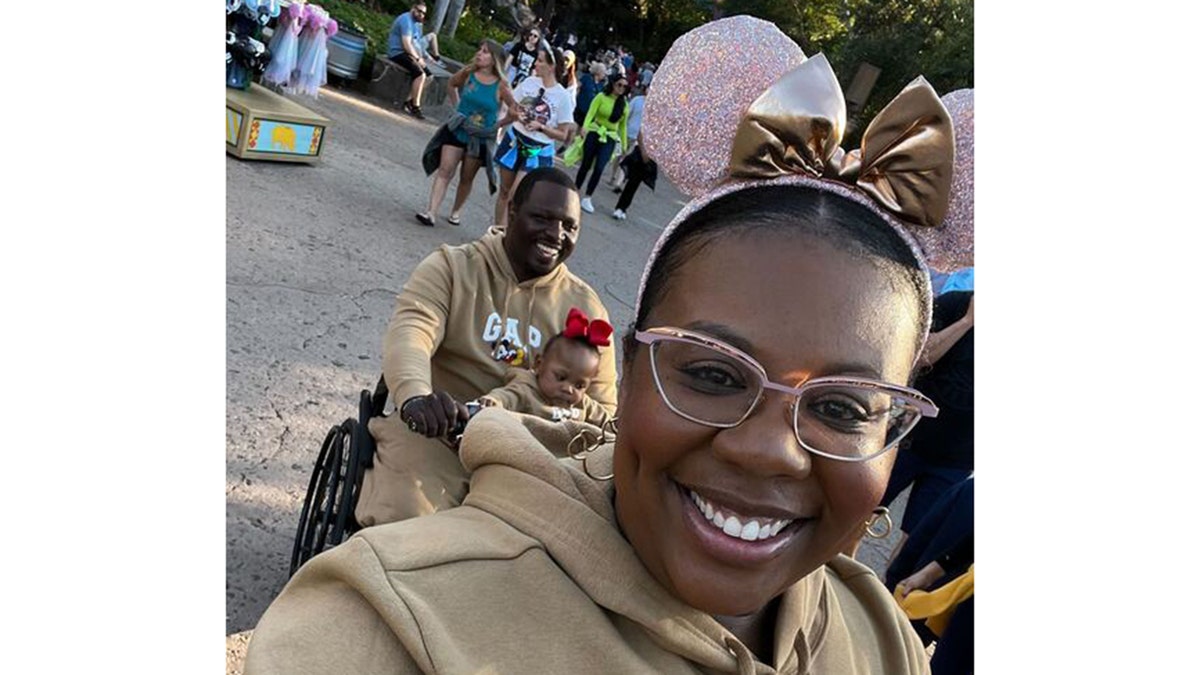
Darris Straughter, pictured in the background with his daughter, is now a stay-at-home dad. His wife is shown in the foreground. (The University of Miami)
“They rarely talk about fertility,” he said. “And unfortunately, we still have some rehab centers in remote areas in the country that will tell these patients, ‘Forget it. You’re not going to have any children.’”
He added, “If [providers] knew that our program exists, and they could actually refer the patients to us, that would be of great help.”
Ongoing research
As the Miami Project’s procedures have shown excellent results, more research on a potential fertility treatment is underway, Ibrahim revealed.
CLICK HERE TO SIGN UP FOR OUR HEALTH NEWSLETTER
The program was awarded a $3.24 million, 40-year grant in July 2023 from the U.S. Department of Defense to conduct a clinical trial to study a drug called Probenecid, which was previously used to treat gout.
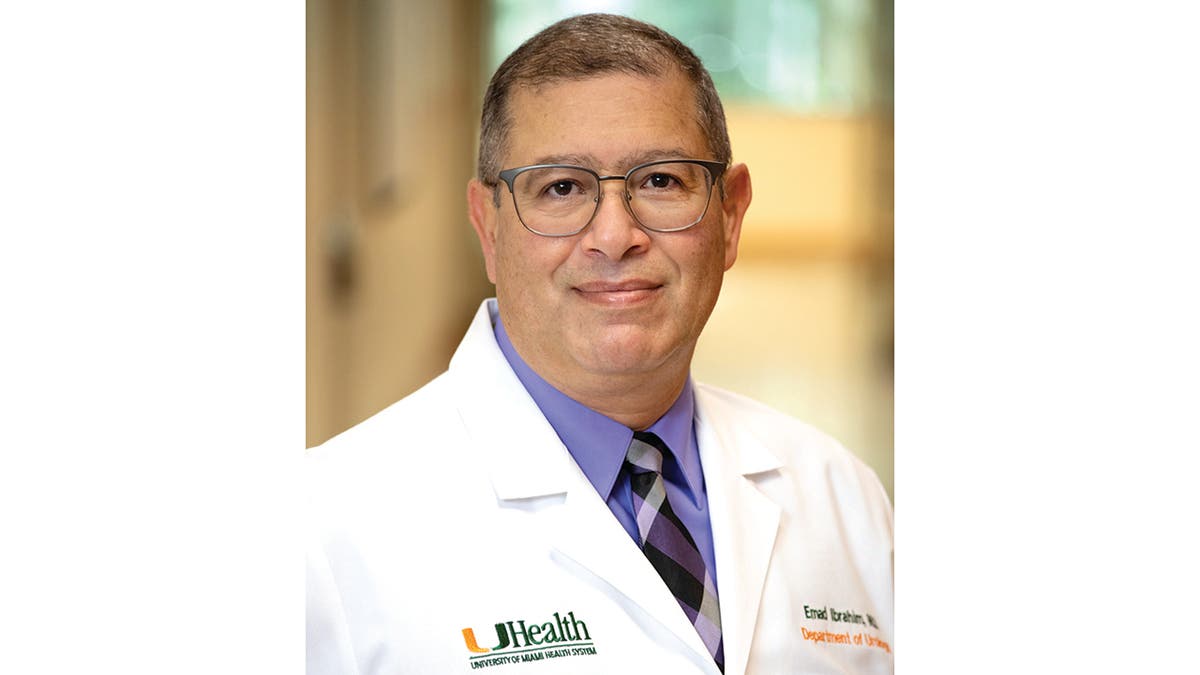
Dr. Ibrahim specializes in reproductive and sexual dysfunction in men with spinal cord injuries. He said “nothing beats the feeling” of finding out one of his patients is expecting a child. (The University of Miami)
Through years of research, Ibrahim and his team found that this drug targets the internal issues that some SCI patients experience, he said.
In the pilot study, which included 18 patients with spinal cord injuries, Ibrahim reported that all participants saw improved sperm quality.
“The medication is safe, and we have the publication to support that it works,” he said.
The larger clinical trial is currently ongoing as the Miami Project is in search of new volunteers.

Health
'How much sleep is too much?': Ask a doctor
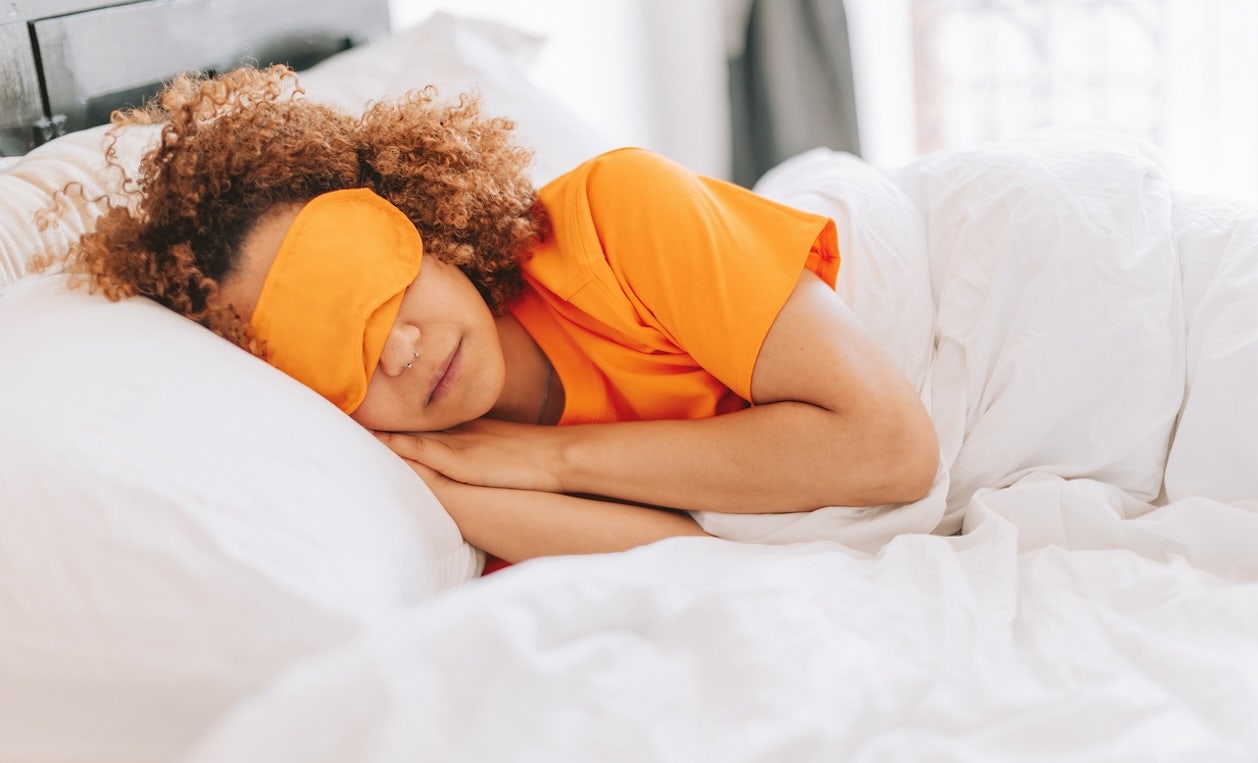
Sleep is known to have amazing health benefits – but how much shuteye is too much?
The answer isn’t so straightforward, Dr. Chris Winter, a Virginia-based neurologist and sleep medicine specialist with Mattress Firm, told Fox News Digital.
“This is to some degree an impossible question to answer,” he wrote.
TO IMPROVE YOUR SLEEP, DO THIS ACTIVITY BEFORE BED, EXPERTS SUGGEST
As with food and other lifestyle factors, Winter explained that the ideal amount of sleep is a “dynamic range.”
Sleep durations exceeding 11 to 12 hours might prompt concern, the expert said. (iStock)
“What is too much food for me might be an amazingly inadequate amount for an Olympic swimmer,” he said as an example.
For the average adult, sleep durations exceeding 11 to 12 hours would be considered “too much” and would start “prompting questions about sleep quality and sleep consistency,” Winter said.
‘NAPUCCINO’ TREND: CAFFEINE BEFORE A NAP COULD BE KEY TO BETTER SLEEP
While getting too little sleep can cause many negative effects, an excess of slumber can pose risks like sleep inertia, which is the feeling of grogginess that occurs after sleeping in for too long.

The sleep specialist recommended catching up on sleep when there’s been a deficit. (iStock )
“For many individuals, it’s less about ‘too much sleep’ and more about compensatory sleep,” he said.
“In other words, you got inadequate sleep during the week and are trying to ‘make up’ for the lost sleep on the weekend.”
For more Health articles, visit foxnews.com/health
Sleeping too much on a regular basis is more a reflection of “inadequate sleep quality” overall, Winter said.
CLICK HERE TO SIGN UP FOR OUR HEALTH NEWSLETTER
Even so, the expert recommends catching up on sleep when there’s been a deficit.
“Studies have shown that if you pay that sleep debt back quickly, it probably keeps the deficit from impacting your health,” he said.

Sleeping too much on a regular basis is more a reflection of “inadequate sleep quality” overall, the sleep doctor said. (iStock)
“While it should never be Plan A, making up lost sleep via napping or sleeping in, when possible, can be a good fallback plan.”
Although some studies have suggested negative health outcomes from both inadequate and excessive sleep, Winter emphasized that it’s better to get too much sleep than not enough.
“Trying to create consistency in sleep is important, too,” he said.
“Sleeping a different seven hours every night is not nearly as healthy as sticking to the same seven hours night after night.”
The Centers for Disease Control and Prevention (CDC) recommends that adults get between seven and nine hours of sleep per night.
Health
Breast cancer spikes among women under 50, plus healthy foods that are high in calories

Breast cancer diagnoses are spiking among younger women, a new report reveals. (iStock)
Fox News’ Health newsletter brings you stories on the latest developments in health care, wellness, diseases, mental health and more.
TOP 3:
– Breast cancer cases spike among women under 50, new report reveals
– Nutritionist warns these 6 “healthy” foods aren’t helpful for weight loss
– Harvard medical student eats 720 eggs in one month and shares the shocking results
ESSENTIAL FOR ALL? – If you take ANY vitamins, which should you take? Here’s what to know. Continue reading…
‘IT’S TOXIC’ – Experts say drinking alcohol is linked to these six types of cancer. Continue reading…
RECIPE FOR REST – Doing this activity before bed could help improve your quality of sleep. Continue reading…
UNFAITHFUL FINDINGS – More than half of Americans with STDs were infected by cheating partners, a survey revealed. Continue reading…
FOLLOW FOX NEWS ON SOCIAL MEDIA
YouTube
SIGN UP FOR OUR NEWSLETTERS
Fox News First
Fox News Opinion
Fox News Lifestyle
Fox News Health
Fox News Autos
Fox News Entertainment (FOX411)
DOWNLOAD OUR APPS
Fox News
Fox Business
Fox Weather
Fox Sports
Tubi
WATCH FOX NEWS ONLINE
Fox News Go
STREAM FOX NATION
Fox Nation
Health
Man paralyzed in diving mishap has medical miracle a year after AI-powered brain implant
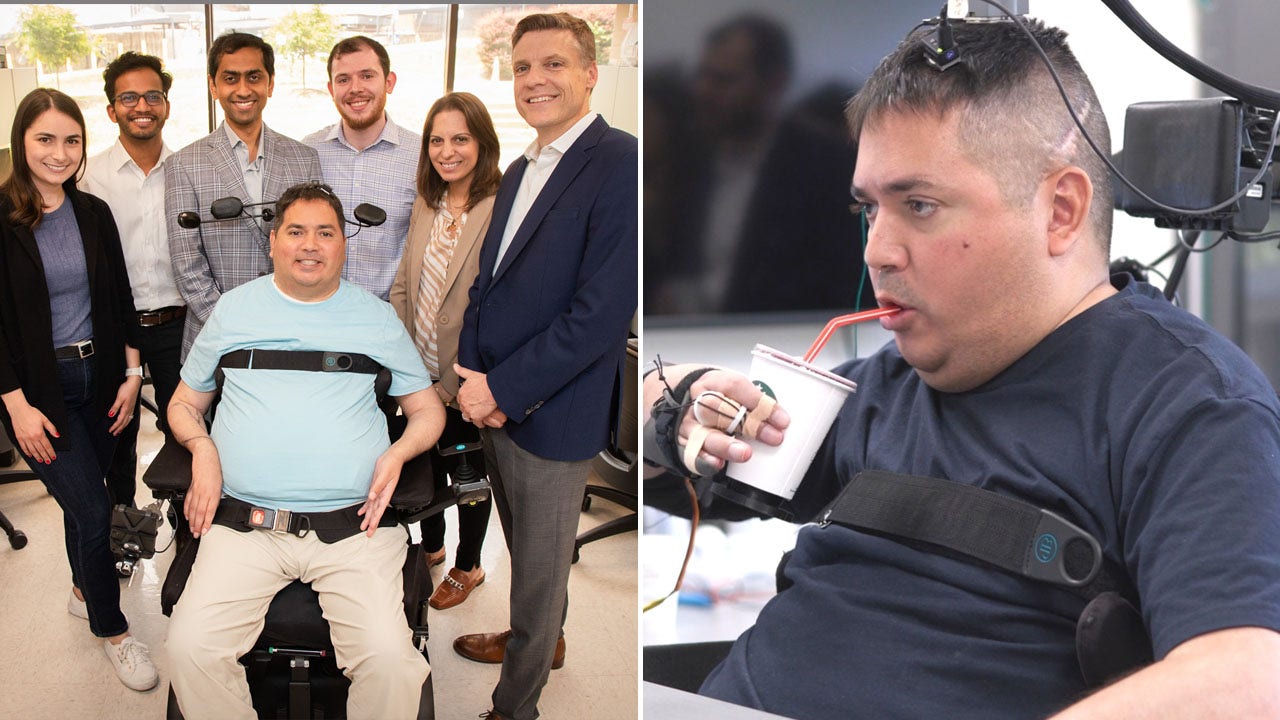
A New York man who was left paralyzed after a diving accident is starting to regain movement a year after receiving an artificial intelligence-powered implant in his brain.
A year ago, Keith Thomas, 46, was only able to move his arms an inch. Today, after the groundbreaking procedure, he is able to extend his arm, grasp a cup and take a drink using only his thoughts and stimulation.
He has also regained more sensation in his wrist and arm, allowing him to feel the fur of his family’s dog.
JOHNNY DEPP VISITS CHILDREN’S HOSPITAL DRESSED AS CAPTAIN JACK SPARROW IN ‘MAGICAL MOMENT’
In 2020, Thomas was living on Long Island and working as a trader on Wall Street when he experienced a diving accident that left him paralyzed from the chest down.
“I dove into a swimming pool at a friend’s house between the shallow and deep end,” he told Fox News Digital. “I hit the bottom and broke my neck. I blacked out, and I couldn’t move.”
Keith Thomas, right, who was left paralyzed after a diving accident, is starting to regain movement a year after receiving an AI-powered implant in his brain. Thomas is also pictured left, front, with his care team. (Feinstein Institutes for Medical Research at Northwell Health)
Thomas recalls getting loaded into a helicopter that took him to the hospital for the start of his long recovery.
“It was during COVID, so it was extremely difficult and isolating.”
A ‘groundbreaking’ procedure
-
/cdn.vox-cdn.com/uploads/chorus_asset/file/25439572/VRG_TEC_Textless.jpg)
/cdn.vox-cdn.com/uploads/chorus_asset/file/25439572/VRG_TEC_Textless.jpg) Technology2 days ago
Technology2 days agoCharter will offer Peacock for free with some cable subscriptions next year
-

 World2 days ago
World2 days agoUkrainian stronghold Vuhledar falls to Russian offensive after two years of bombardment
-

 News1 week ago
News1 week agoVideo: Where Trump and Harris Stand on Democracy
-

 World2 days ago
World2 days agoWikiLeaks’ Julian Assange says he pleaded ‘guilty to journalism’ in order to be freed
-

 Business1 week ago
Business1 week agoVisa, Google, JetBlue: A Guide to a New Era of Antitrust Action
-

 Technology1 day ago
Technology1 day agoBeware of fraudsters posing as government officials trying to steal your cash
-

 Education1 week ago
Education1 week agoVideo: Los Angeles Bus Hijacked at Gunpoint
-

 Politics1 week ago
Politics1 week agoFLASHBACK: VP Harris pushed for illegal immigrant to practice law in California over Obama admin's objections







